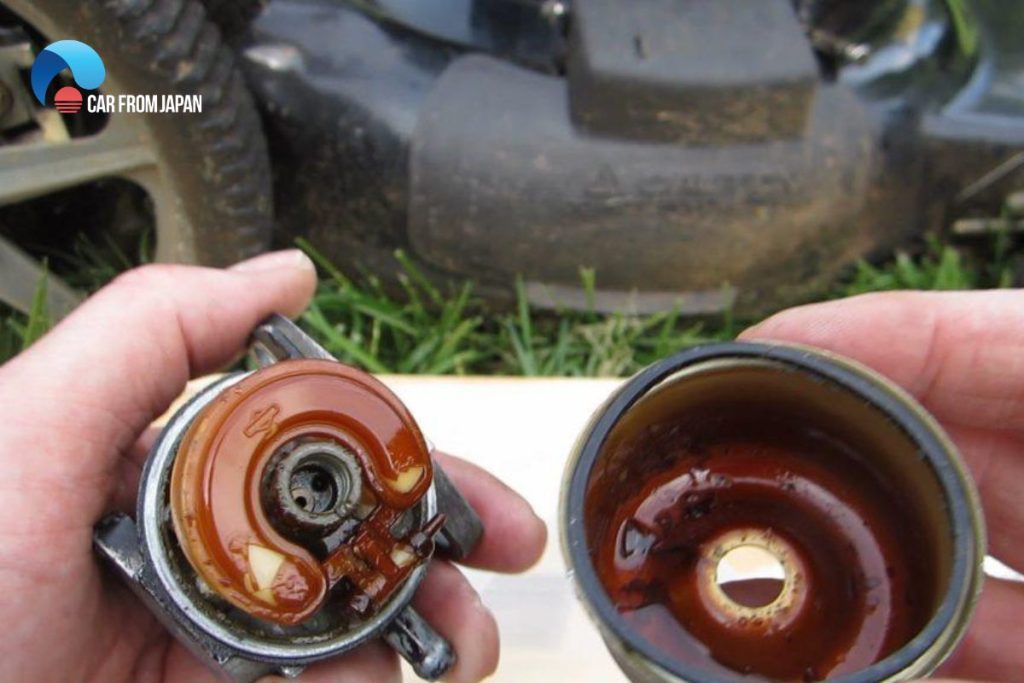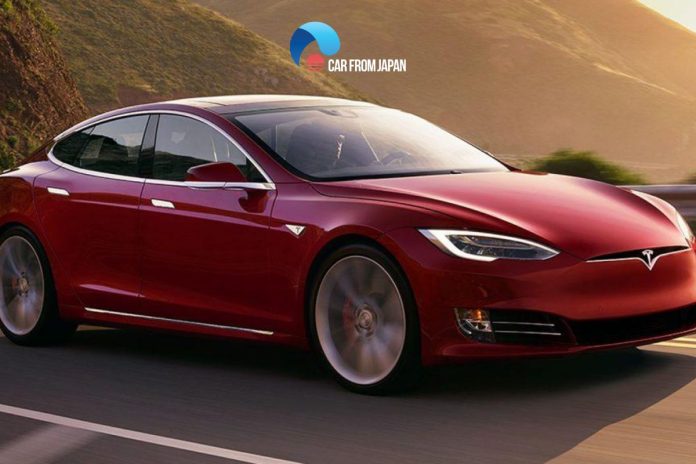When a car starts jerking as you accelerate it, it is undoubted that it’s usually a sign of an impending issue. However, sometimes car jerks when accelerating is a common problem faced by several car owners. But don’t worry because this symptom also has a solution like other car problems.
Car Jerks When Accelerating – Reasons & Solutions
You must be aware of all the feasible reasons behind the problem in accelerating before jumping to the solution. The car jerking problem happens to be an issue common in both manual and automatic cars.
Polluted air filter
What does it mean when your car jerks? Air filters keep the car away from the road pollutants such as dirt, debris, and other things that contaminate the engine. Over time, filters are susceptible to accumulating obstructions and build-ups. In addition to pollutants, dirty air filters are also the cause of inefficient fuel combustion.
Therefore, you should wipe those off and then check to make sure the symptoms will not happen again. For example, the Toyota Camry is said to sometimes jerk when accelerating and the most common reason behind this is air filter pollution. Furthermore, some people think that the Toyota Camry is a bit sluggish when accelerating from a lower speed, so notice to accelerate from a standstill.
Damaged fuel pipes
The primary job of fuel pipes is transferring fuel from one section of the engine to another. It is possible that a car jerks when accelerating due to broken fuel pipes. The situation may even get worse and cause a fire in the car.
Usually, it gets difficult for the car to accelerate due to disruption in fuel transfer. The internal combustion is susceptible to other major issues, once a fuel pipe leaks.
To deal with this problem, check for leaks that may be chewed off by rats. Moreover, owners of old cars should pay attention to this issue because they are likely to have a faulty flue line.
Damaged carburetor

The carburetor blends and regulates the right amount of fuel and air as it goes into the engine cylinders for appropriate fuel combustion. A damaged carburetor is responsible for the poor performance of the car as well.
Like a dirty air filter, an improper carburetor also causes a car to jerk as it disturbs the fuel-air mixture balance. If you figure out an issue with the carburetor, check the fuel inlet, throttle lever, idle jet, or throttle valve.
Accumulated moisture in the distributor cap
The weather is also one of the major reasons why a car jerks when accelerating. Obviously, it usually occurs during the winter with very low temperatures when you park your car outside. Moisture gathering in your car’s distributor cap can cause the car to jerk and lead your engine to misfire while you accelerate.
The solution here is quite simple: prevent parking cars in a cold and wet place and try to find a warmer spot instead.
Polluted injection system, fuel tank, and filter
Gunk or dirt can cause severe problems to your car. A polluted fuel tank, filter, or injection system can cause a car to jerk very easily. It disturbs the flow and supply of the fuel into the engine. Furthermore, insufficient fuel in the car causes it to jerk as you accelerate the car.
Nevertheless, it isn’t too hard to fix and you don’t need to hire someone to do it. You can buy a special kit solely for injectors in the local hardware store or online and clean that area carefully. It is also advised that you should do it regularly to make sure your engine doesn’t get clogged up with dust and dirt.
Poor engine tuning or blockage in the engine
If everything comes clean, you must check your engine. Basically, engine tuning involves nothing more than adjusting a vehicle’s engine as well as the fuel system. Effective engine tuning boosts your car’s performance and eliminates the car’s jerking.
Besides poor engine tuning, one of the most frequent reasons for a car jerking when you accelerate is a blockage in the engine. Jerking happens as gasses are not coming out of it when they are supposed to.
In addition, you should not ignore the “Check Engine” light in your car, especially when it is blinking. This problem occasionally happens in the Honda Accord and Nissan Murano. In this case, sending the car to a professional mechanic to get it tuned or remove the blockage is the best solution.

Drained acceleration cable
A car jerking may be a result of a very worn-out acceleration cable. You will notice some signals for this symptom such as your car taking excessive time to respond when you press the accelerator and start jerking. Another symptom is that if you take a look inside, the outer covering of the acceleration cable will be damaged.
The best you can do is to change the drained acceleration cable as soon as possible, as the car will jerk and stop at any moment if you leave it to break. Take the vehicle to a mechanic to solve the problem.
Motor winding
Engine winding can be another reason for car jerking. Wear of the engine’s winding is most likely to be caused by the heavily stressed engine – for example through hard acceleration. Signs for this are:
- If there is more than one winding and one of them is broken, the car will jerk.
- If there’s only one winding, the car will not start.
The use of an Ohmmeter is the only way to know this, so if you don’t have one, you should check with a mechanic to know if the motor winding is the reason your car is jerking.
Watch more:
FAQs
What sensor can cause a car to jerk?
Mass Air Flow (MAF) sensors can be a culprit. This sensor measures the amount of air entering the engine. A faulty MAF sensor can send incorrect readings, leading to an improper air-fuel mixture, resulting in jerking or hesitation during acceleration.
Can low oil cause a car to jerk?
Yes, low oil can absolutely cause a car to jerk, especially during acceleration. Low oil levels also mean lower oil pressure. This can affect the operation of various engine components that rely on proper oil pressure, further contributing to jerking and rough running.
How much does it cost to fix a jerking car?
It’s hard to give a definitive cost for fixing a jerking car without knowing the exact cause. The price can range widely, from a simple and inexpensive fix to a major repair costing hundreds or even thousands of dollars. For example, the cost of fuel injector cleaning will range from $75 to $300, Mass Airflow Sensor replacement: $350 – $600…
Summing Up
As we’ve explored, a lot of factors can contribute to this problem, ranging from simple issues like worn spark plugs or dirty fuel injectors to more complex problems like faulty transmission components or engine misfires.
Identifying the root cause requires careful diagnosis, often best left to a qualified mechanic.
We hope that this article will be somehow useful for you!




This is quite informative and instructive. Really appreciable.
I just bought a used Honda Odyssey 2007 {96,000km} and it jerks when driven at a speed above 40 kmh.
What could possibly the cause of this?
Hello? My Honda Accord 2003 jerks when i accelerate from a stop, what could be the issue?
My son replaced his 2005 toyota matrix motor. When he takes off it buck and jerks.. He put several new parts on but used most of what was on there with the other motor. He said it also did this before the motor replacement but not this bad. They are young 23 yrs old to be exact and he is struggling with this to get it fixed. I dont usually write websites but rhis one seemed well put together rather than filled with garbage like most. Is there anythingvyou can tell me to try so we can get this fixed. Anything will be of great help. He ask me to loom and see if it had an external fuel filter but everything i found led to no in my head…
sorry about the mistakes
My Honda Jazz 1.3 was jerking and cutting out when driving. The mechanics first checked and replaced faulty spark plugs, cleaned the fuel injectors and check the petrol supply for impurities. The fuel filter is inside the tank of my model of car, and so it would be necessary to drain the tank and dismantle it to get at the filter so we did not do that, although I would have insisted if we had not found to problem. The mechanic drove the car while using the computer to monitor its functioning and when it next cut out after jerking, the crank shaft sensor was found to be faulty. Once replaced, the car drives better than it has for a long time! With or without aircon, no more jerking or straining. I hope our experience helps someone else 🙂
I drive a Nissan hardbody NP300 it jerks when going an uphill. What might be the cause?
My Nissan Serena 2.0L CVT HISTAR HYBRID. Any owner of this model having jerking issue when drive at slow pace? Thanks